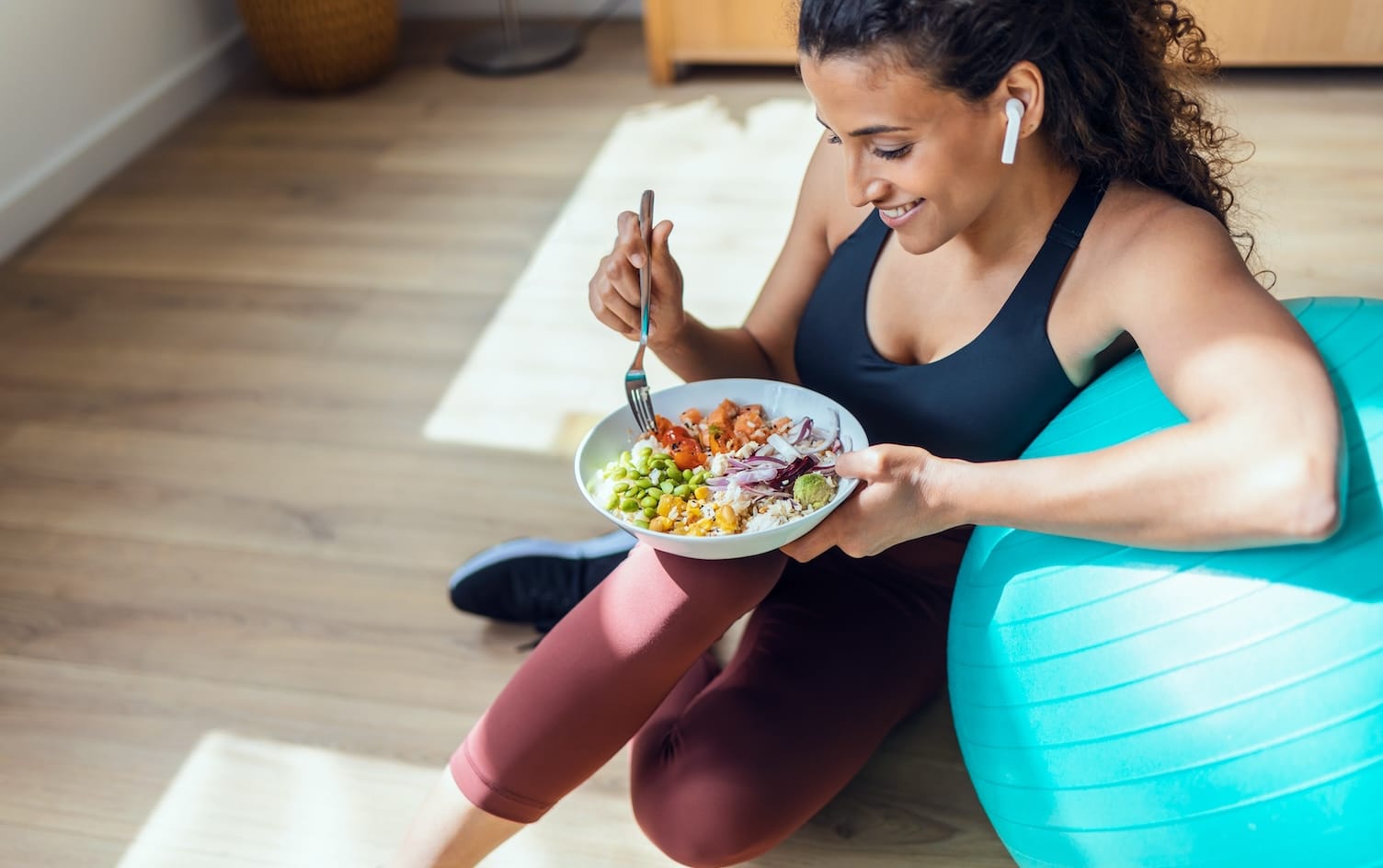Whether you’re working out to lose weight, build strength, or just feel your best, nutrition plays a critical role in achieving your fitness goals. What you eat before and after exercise can drastically affect your energy levels, performance, muscle recovery, and even how efficiently your body burns fat.
Why Pre- and Post-Workout Nutrition Matters
When you exercise, your body uses stored energy—primarily glycogen (carbohydrates) and amino acids (protein). Eating the right foods at the right times helps:
Maximize energy and stamina during workouts
Prevent muscle breakdown
Speed up post-workout recovery
Replenish lost nutrients
Support muscle repair and growth
Let’s break down what to eat before and after a workout to power Bluepill Express your performance and results.
What to Eat Before a Workout
Timing is key:
Ideally, eat 1 to 3 hours before your workout. This allows time for digestion and energy conversion. A smaller snack can be eaten 30 to 60 minutes before a short or moderate session.
Key Nutrients to Focus On:
Carbohydrates: Your main source of energy. Complex carbs offer sustained fuel, while simple carbs are ideal closer to your workout.
Protein: Helps reduce muscle breakdown during exercise.
Fats: Avoid large amounts, as fats slow digestion. A small amount of healthy fat is okay if eaten hours ahead.

Best Pre-Workout Meals & Snacks
1. Banana with Nut Butter
When: 30–60 minutes before
Why: Fast-acting carbs from banana + healthy fat from peanut or almond butter
Tip: Add a sprinkle of sea salt if you're prone to sweating heavily.
2. Oatmeal with Berries and Greek Yogurt
When: 1–2 hours before
Why: Complex carbs + protein combo that digests well
Tip: Choose rolled oats over instant for more fiber and longer energy.
3. Whole-Grain Toast with Egg
When: 1–2 hours before
Why: Balanced meal with protein, carbs, and healthy fats
Tip: Add avocado for extra potassium and vidalista tablets slow-burning energy.
4. Protein Smoothie with Banana and Spinach
When: 30–60 minutes before
Why: Light, easy to digest, and nutrient-dense
Tip: Include chia seeds for omega-3s and fiber.
5. Low-Fat Greek Yogurt with Honey and Almonds
When: 60–90 minutes before
Why: A high-protein, moderate-carb snack that fuels longer workouts
Tip: Choose unsweetened yogurt to avoid sugar crashes.
What to Avoid Before a Workout:
Heavy, greasy foods (burgers, pizza, fried items)
High-fiber foods (can cause stomach discomfort)
Sugary energy drinks or candy (can spike and crash energy)
Excess caffeine, especially if you’re sensitive to it
What to Eat After a Workout
Your post-workout meal is all about recovery. The goal is to Kamagra Australia replenish glycogen, repair muscle tissue, and rehydrate. The ideal window to eat is within 30 to 60 minutes after finishing your workout.
Key Nutrients to Focus On:
Protein: Helps rebuild and repair muscle tissue
Carbohydrates: Replenish energy stores
Fluids & Electrolytes: Restore hydration lost through sweat
Best Post-Workout Meals & Snacks
1. Grilled Chicken with Sweet Potatoes and Broccoli
Why: High-quality protein + complex carbs + fiber and micronutrients
Tip: Add olive oil or avocado for healthy fat and extra satiety.
2. Salmon with Quinoa and Asparagus
Why: Anti-inflammatory omega-3s + muscle-supporting complete protein
Tip: Quinoa is a complete plant protein—great for muscle repair.
3. Tuna Salad Wrap in a Whole Wheat Tortilla
Why: Lean protein and complex carbs make it great for post-gym lunches
Tip: Use Greek yogurt instead of mayo for a healthier swap.
4. Protein Smoothie with Whey Protein, Berries, and Oats
Why: Fast-digesting recovery drink that refuels and rehydrates
Tip: Add a teaspoon of cocoa for antioxidants and flavor.
5. Cottage Cheese with Pineapple and Chia Seeds
Why: Casein protein supports slow-digesting recovery, cenforce tablet especially post-evening workouts
Tip: Add cinnamon to balance blood sugar.
What to Drink Before and After Exercise
Hydration is non-negotiable. Water supports circulation, temperature regulation, joint lubrication, and nutrient transport.
Before Workout: Drink 12–16 oz of water 1–2 hours before exercise.
During Workout: Sip 3–8 oz of water every 15–20 minutes.
After Workout: Rehydrate with 16–24 oz of water for every pound of fluid lost.
Electrolytes (like sodium, potassium, and magnesium) may be needed after intense or long workouts, especially if you sweat a lot. Try:
Coconut water
Electrolyte tablets
Homemade sports drinks with sea salt and lemon
Tip: Avoid sugary commercial sports drinks unless you’re doing extended high-intensity cardio (>60 minutes).
Workout Nutrition for Specific Goals
For Weight Loss
Pre-Workout: Light, carb-focused snack (e.g., banana or apple)
Post-Workout: High-protein, low-carb meal (e.g., grilled chicken and vegetables)
Insight: Avoid "reward eating" after workouts—calories burned don’t always justify high-calorie treats.
For Muscle Gain
Pre-Workout: Balanced meal with carbs and protein (e.g., toast and eggs)
Post-Workout: Protein-rich meal with some carbs (e.g., steak and brown rice)
Insight: Don’t skip carbs—muscle synthesis needs them too.
For Endurance Athletes
Pre-Workout: Larger meal 2–3 hours before (e.g., oatmeal and eggs)
During Workout: Small, carb-based snacks or gels for events >90 minutes
Post-Workout: Carbs + protein within 30 minutes (e.g., smoothie or rice bowl)
Insight: Sodium is critical for hydration—replenish with electrolyte drinks.
Common Mistakes to Avoid
Skipping meals before or after a workout – leads to fatigue, poor recovery, and muscle breakdown.
Overeating post-workout – can stall weight loss goals.
Relying on supplements over whole foods – real foods provide more complete nutrition.
Ignoring hydration – even 1–2% dehydration impairs performance.
Eating too much fiber or fat before training – may cause GI distress.
Final Thoughts
Eating the right foods before and after your workout is just as important as the exercise itself. Whether you’re trying to lose weight, build muscle, or simply improve your fitness, proper fueling will help you get there faster—and healthier.
Recap:
Pre-Workout: Focus on light carbs + some protein (1–2 hours before).
Post-Workout: Prioritize protein + carbs + fluids (within 30–60 minutes).